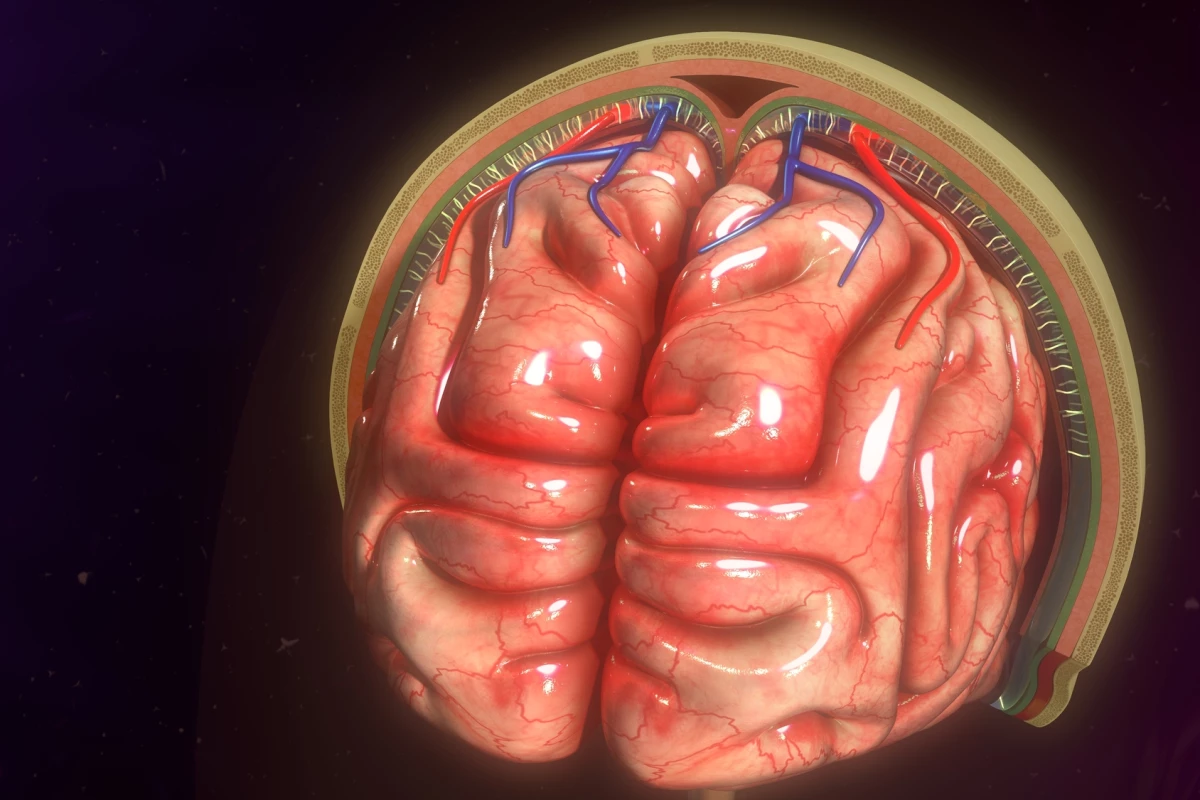A new study, published in the prestigious journal Nature, is describing the surprising discovery of a previously unknown gut-brain link. The research reveals certain immune cells that inhabit a protective membrane surrounding the brain actually originate in the gut.
The research was conducted by an international collaboration led by UK scientists from the University of Cambridge, and US researchers from the National Institute of Health. The study focused on a trio of protective membranes that surround the brain and spinal cord, called the meninges.
We know the meninges are home to a number of different kinds of immune cells but this study zoomed in plasma B cells, which are responsible for producing antibodies in response to infections.
Investigating exactly what kinds of antibodies were produced by plasma cells in the meninges revealed an unexpected surprise. The antibodies discovered are a type called Immunoglobulin A (IgA), and they are generally made in either the gut or the mucosal lining of the lungs or nose. Sequencing the antibody genes, the researchers discovered these particular plasma B cells in the meninges actually originated in the gut.
“The exact way in which the brain protects itself from infection, beyond the physical barrier of the meninges, has been something of a mystery, but to find that an important line of defense starts in the gut was quite a surprise,” explains Menna Clatworthy from the University of Cambridge and the Wellcome Sanger Institute.
Several follow-up mouse experiments affirmed this strong gut-brain relationship. When the researchers raised mice with no gut bacteria they found these particular IgA-producing cells disappeared from the meninges.
This raised the hypothesis that the role of these specific immune cells is to protect the brain from damaging gut microbes that could enter the bloodstream. Backing up this hypothesis the researchers saw gut microbes spread from the blood into the brain if these IgA-producing cells were eliminated from the meninges.
“… it makes perfect sense,” says Clatworthy, “even a minor breach of the intestinal barrier will allow bugs to enter the blood stream, with devastating consequences if they’re able to spread into the brain. Seeding the meninges with antibody-producing cells that are selected to recognize gut microbes ensures defense against the most likely invaders.”
The study suggests this protective gut-brain mechanism probably evolved as a way to defend the brain and central nervous system (CNS) from the masses of bacteria that live within our gut. It is noted that without this protective mechanism even a brief transient breach of the intestinal barrier could have devastating consequences to our CNS and brain.
Finally, the researchers verified these IgA cells were indeed present in human meninges. Tissue removed during routine surgeries validated the animal findings, confirming this gut-brain mechanism is most likely vital in helping the body battle CNS infections such as meningitis.
The study was published in the journal Nature.
Source: University of Cambridge




